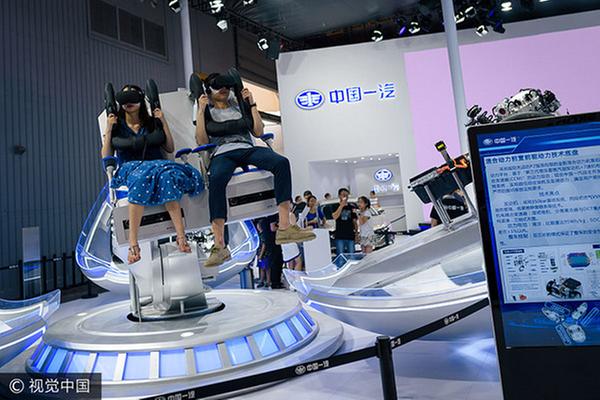New offers tantalize market with greater prospects of a boost
By Hao Yan | China Daily | Updated: 2017-08-28 08:05
 |
| The ongoing Chengdu Motor Show 2017 showcases more than 100 brands from China and abroad. [Photo/VCG] |
Experts see trend of more buyers taking decision to purchase premium brands
Global automobile executives swooped into Sichuan province last week to take in one of the four most influential Chinese motor shows, which is tantalizing the sector with the prospect of a boost, amid a market whose overall growth is slowing down.
The ongoing Chengdu Motor Show 2017, set to wrap up on Sept 3, brought in a slew of exciting new product ranges and is expected to attract about 690,000 visitors, an estimated 5 percent more than last year.
Organizers said the trade show, showcasing a total of 63 newly released models, is riding a wave of rapid expansion and is becoming more influential in the market.
The leading luxury brands, Mercedes-Benz and BMW, tied again for having the biggest displays, boasting areas as large as 2,400 square meters.
Their endeavors signal the Chinese market's growing appetite for luxury auto products, in tandem with the expansion of the country's middle income groups.
Industry insiders observed that more and more Chinese buyers are actively moving to buy premium auto brands, rather than settling for cheaper cars.
Duan Jianjun, executive vice-president of Sales & and Marketing at Beijing Mercedes-Benz Sales Service Co Ltd, said he had witnessed growing numbers of customers making the key decision to buy more expensive cars.
"There will be more customers who stay only with the premium brands in the future," Duan told a forum on Thursday ahead of the Chengdu Motor Show.
"They could be everyday people who look ordinary on the outside but really enjoy their own lives," Duan said.
Last year, only three premium auto models made it into the list of the nation's 40 best sellers, according to industry statistics. Surprisingly, a total of six premium ones have made it into the top 40 in the first seven months of the current year.
The six premium products include three locally manufactured mid-to-large-size premium models, namely the Audi A6L, BMW 5 series and Mercedes-Benz E-Class. Finally, three China-made luxury midsize cars made it to the list: the Mercedes-Benz C-Class, BMW 3 series and the Audi A4L.
Quality has become many people's main aspiration in making a new car purchase, resulting in more and more demand for premium auto brands.
Liu Shijin, former deputy director of the Development Research Center of the State Council, said earlier this year that customers in lower tier Chinese cities, including third-tier and lower categories, are becoming a new source of power that is driving the Chinese new car market.
He said that considering their relatively lower outlays in housing and other expenses, residents there tend to spend more on vehicles to display their social standing.
On the other hand, first and second-tier cities have placed restrictions on new car license plates. Car buyers there, who are fortunate to already have a car plate, will also make upgrade purchases for their extended family including parents and children, Liu added.
Jochen Goller, senior vice-president of BMW Brilliance Automotive Co, said a large number of BMW car buyers had made an upgrade purchase.
"Many used to have a volume brand car or have no car," he told China Daily. "They never owned a premium car, so buying a BMW has fulfilled a dream."
Goller pointed out that one of the major motivations for those paying for a premium product is value for money.
BMW Brilliance has more than 10,000 well-trained product experts across the country. They are tasked with explaining what goes into premium quality cars, to help potential customers understand why BMW cars offer a value for money buying choice.
"There are more and more sophisticated customers in the country, who know exactly what they want," Goller added.
Duan at Beijing Mercedes-Benz said: "The customers make their decisions based on their preferences. They know what they really want."
Many, Duan added, are young Mercedes-Benz buyers who are white collar, come from second-generation wealth, or could be small property business owners, between 18 to 28 years old.
Not only are the Chinese customers of Mercedes-Benz and BMW cars younger than the average ages of owners internationally, so too are those buyers of Audi in China.
The three premium automakers have all taken the same actions in introducing plenty of the latest technologies as standard to their offerings to the Chinese market, besides launching youth-targeted product lineups for the Chinese market.
"Chinese customers perceive high-tech as premium, so automakers have to invest more on in-car technologies to further enhance their brands," Deloitte Consulting (Shanghai) automotive industry partner Marco Hecker told China Daily in June.
Hecker added that the premium carmakers had big budgets to install as many high-tech gadgets as they wanted-in a bid to lure and amuse younger generation customers, who were comparing their premium products with the volume auto brands.
























